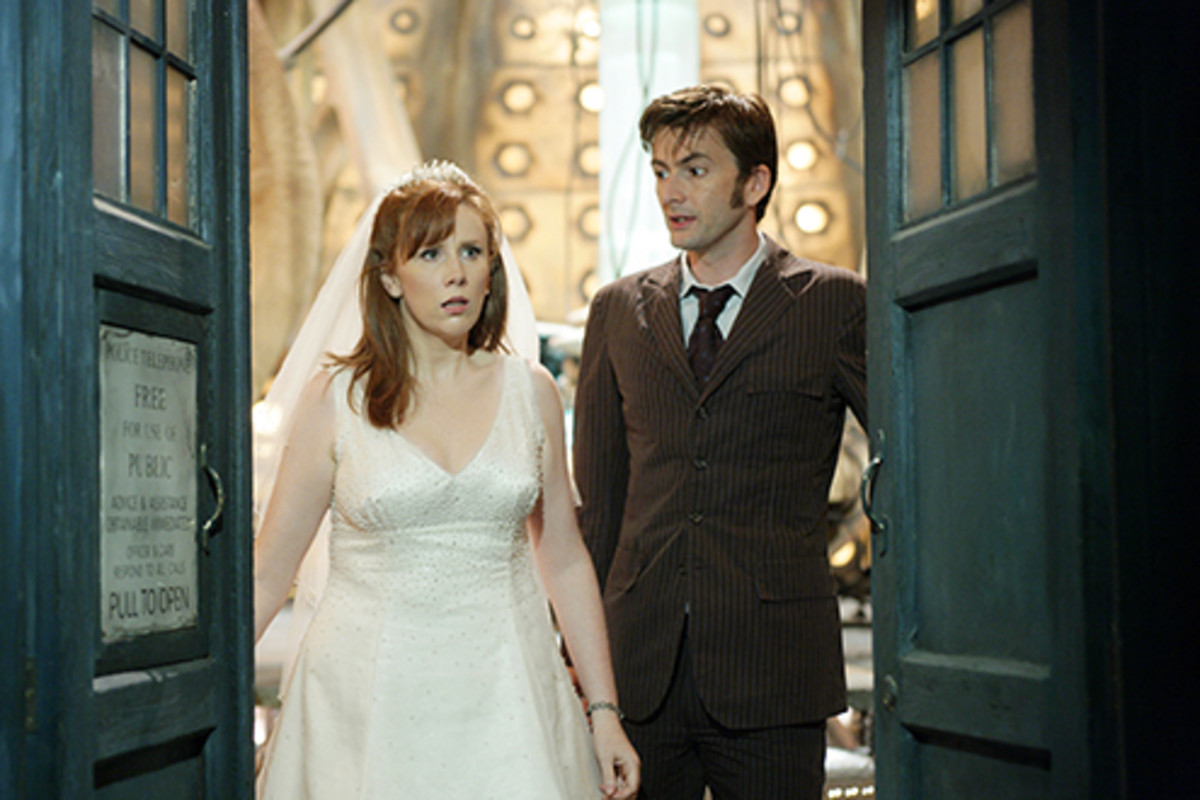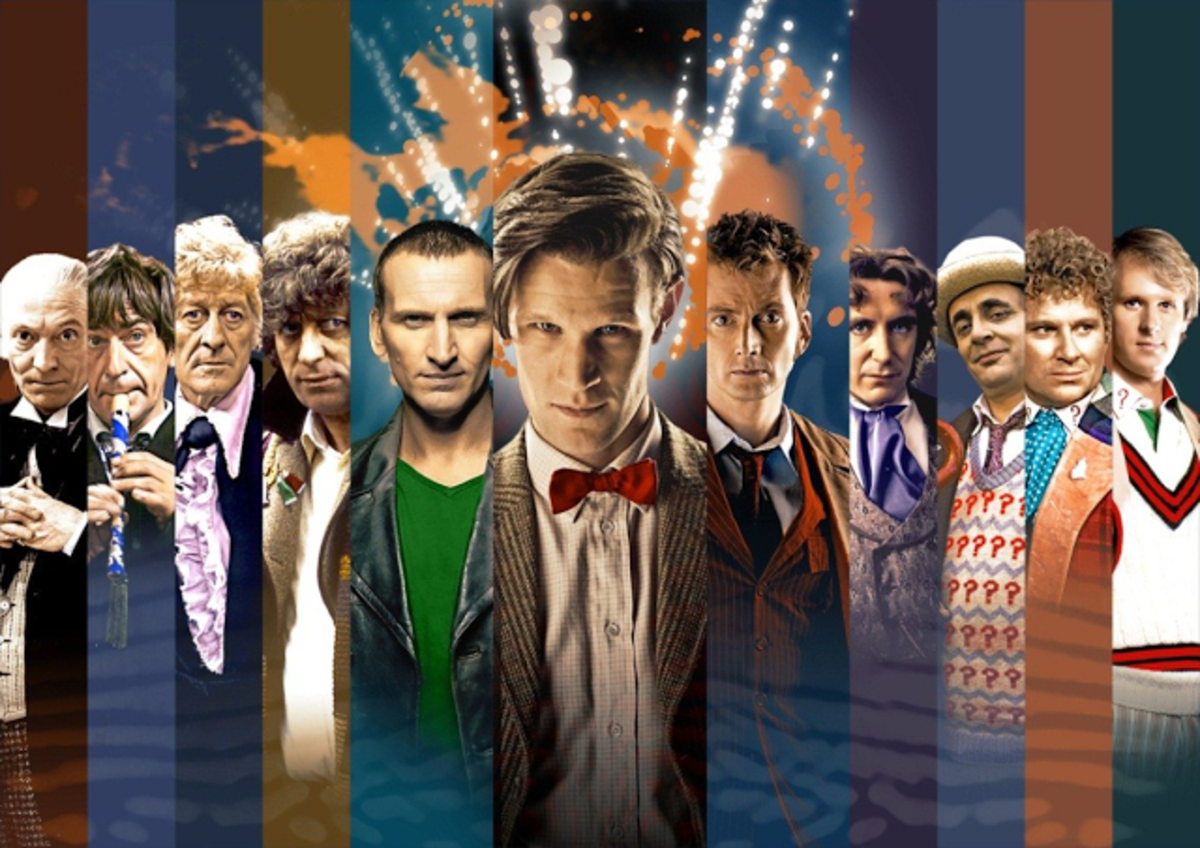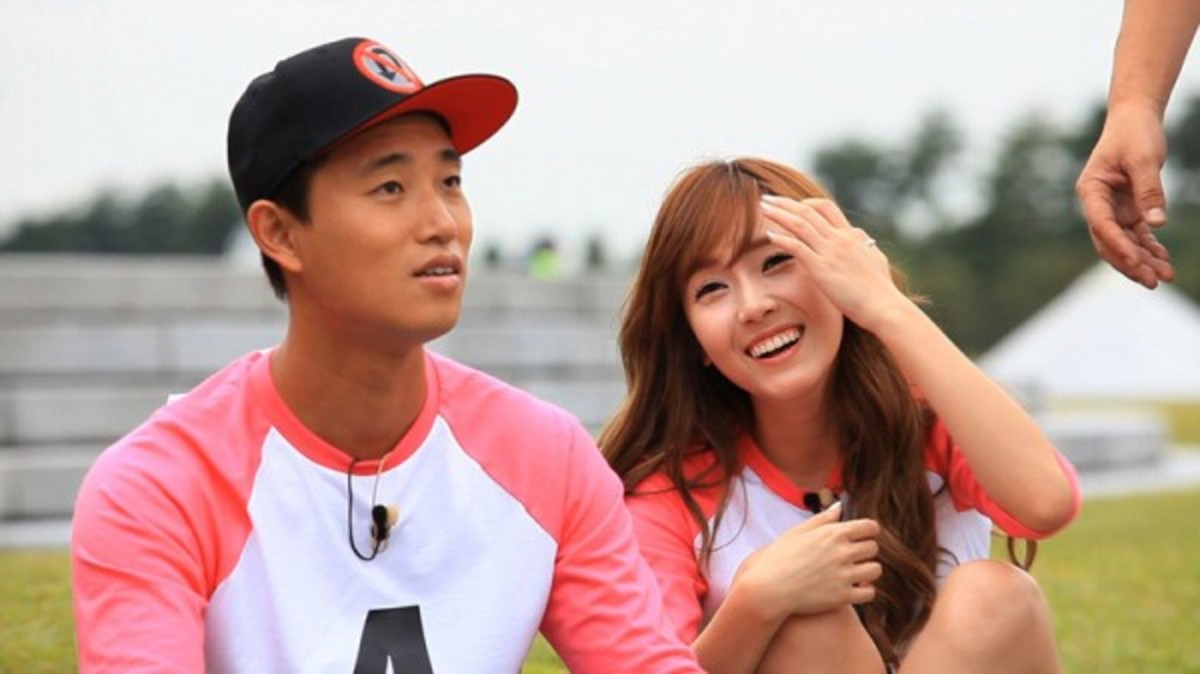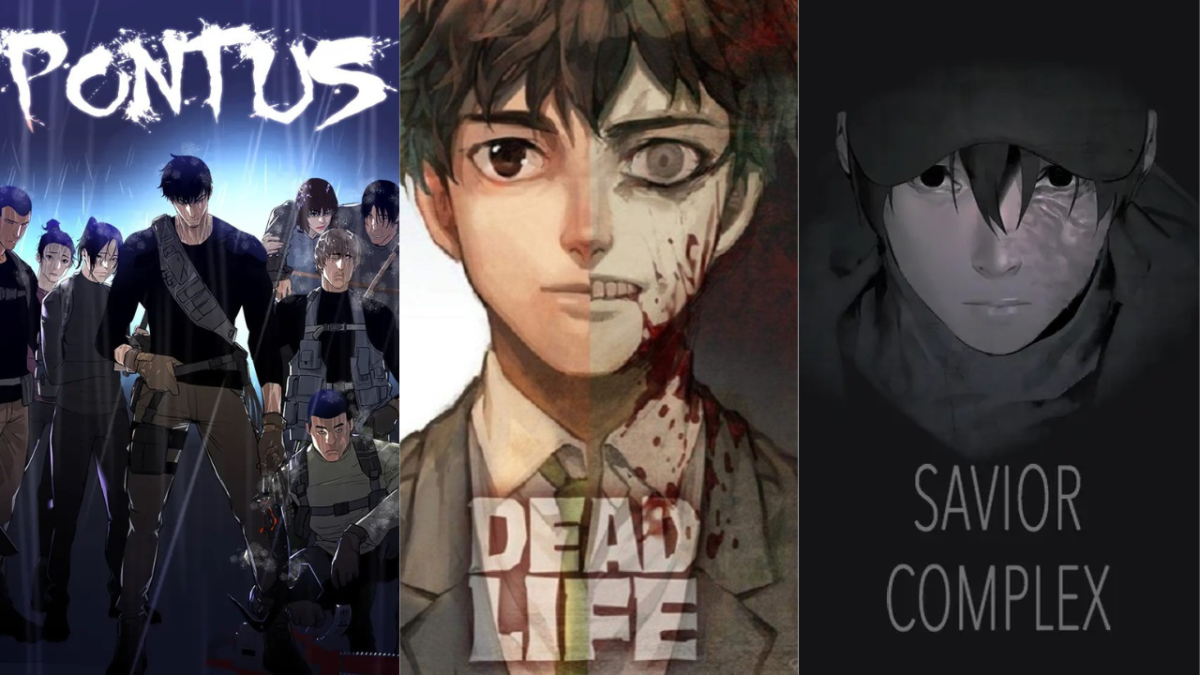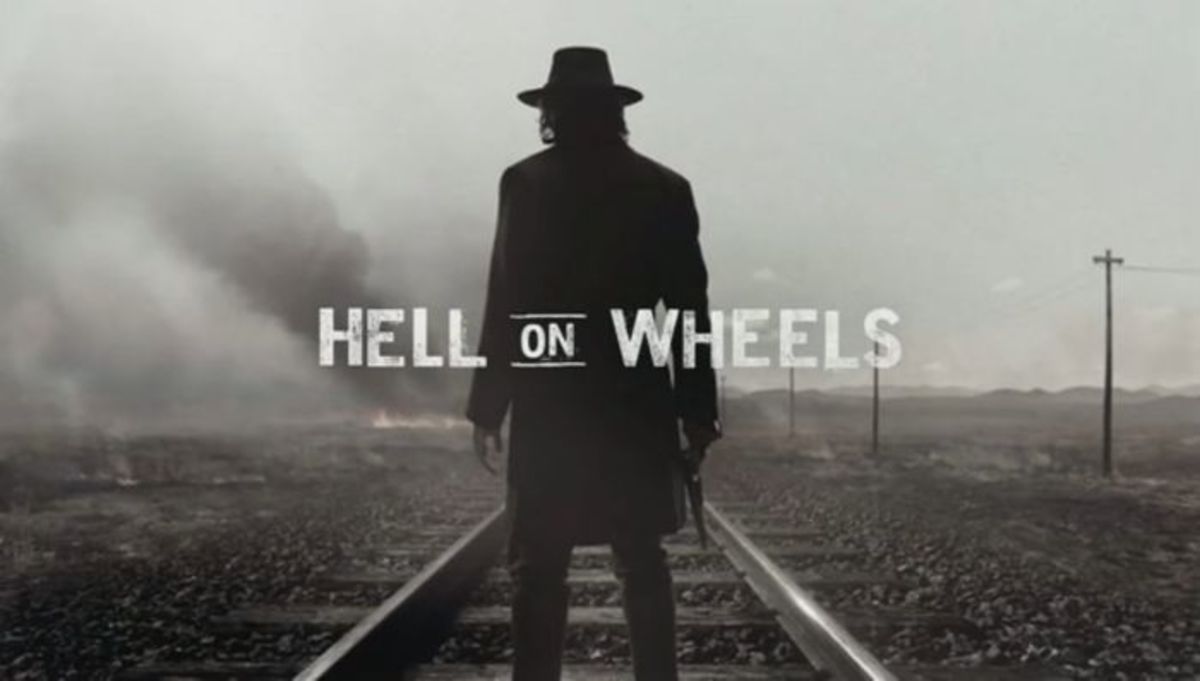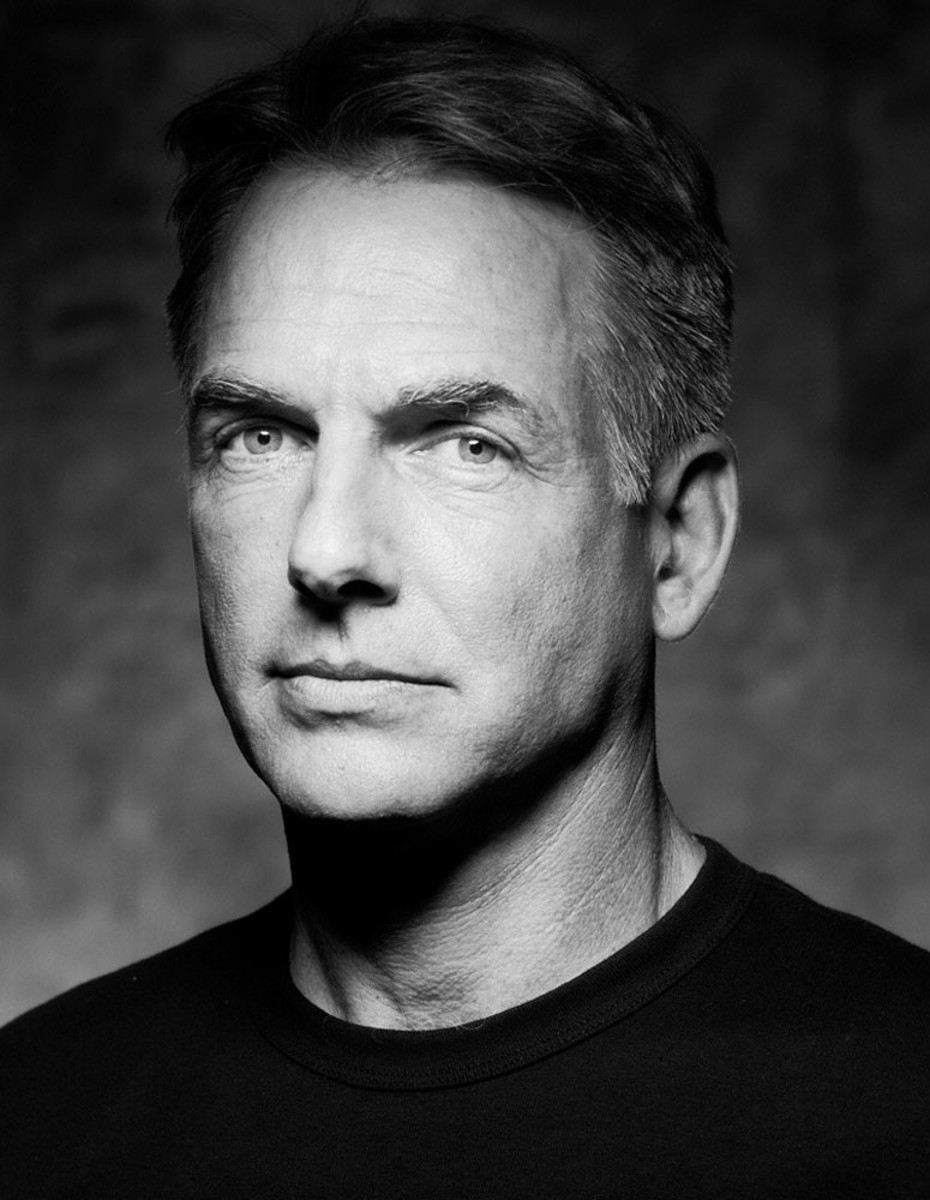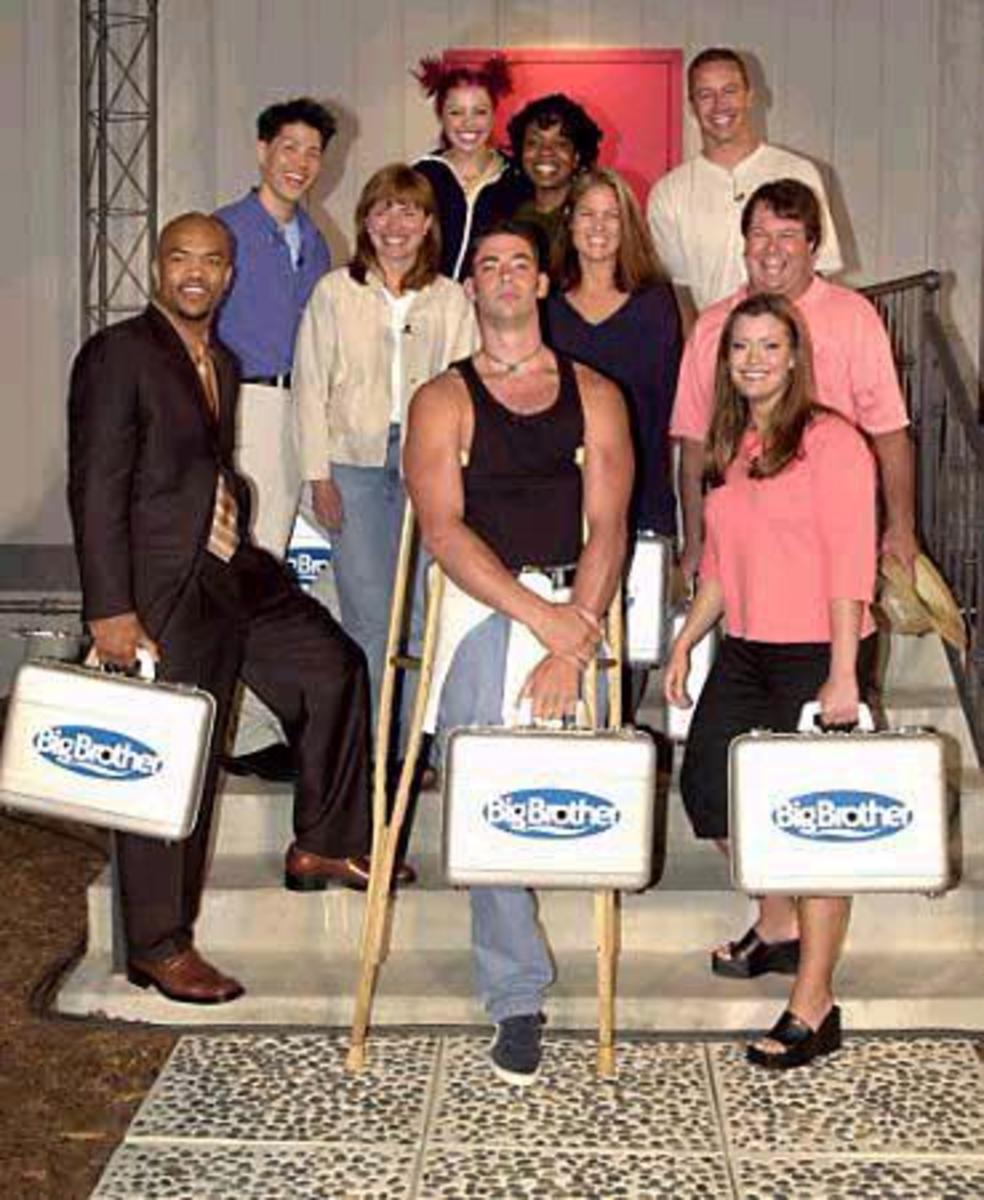Ten Essential Seventh Doctor Moments
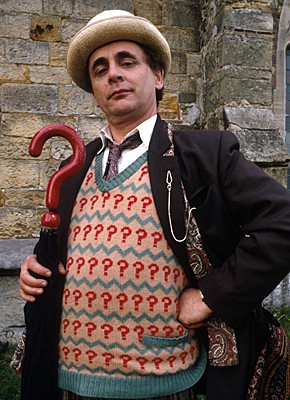
After the tumultuous pandemic reception of the largely underrated Colin Baker era, the producers of Doctor Who found themselves in an equally beleaguering predicament where they were set the necessity to revive the science fiction paragon with a renaissance of resplendent reinvigoration. There were certainly undisputed benefits of the Sixth Doctor, and he did garner his fair allocation of droves of affectionate fans willing to wax poetic in testimony of the virtuous aspects that the character possessed in spades, but the extremely overt conveyance of his inherent arrogant narcissism was protruding and offensive for some; And, combined with the additional hindrances of dubious writing and production value, the show was in a perilous state to be established in.
What was most evident in the aftermath of the zeitgeist of the mid-1980s was that a rectification of refreshment was imperative for the sustained continuity of the longevity of the program, and there were multiple areas that urgently required the attention of various avenues for potential endeavour into the pursuits of enhancement-Colin Baker was one of the few redeeming features of the diminishing returns of Doctor Who at times in the consensus of the subjective opinion of its critics, but the introduction of a new figurehead stalwart actor for the series was on the agenda for the reinvigoration; Sylvester McCoy adequately fit that bill by the astute discernment of the producers by the determination of those re-ingratiated by the conclusion of the 24th season of the classic era of the series.
He was responsible for the reintroduction of the more comical quirks of the Doctor, in a full embracement of those shades of the character's persona for the first time since Tom Baker's Fourth Doctor properly executed a more jovial brand of the intrinsic eccentricity with initial frivolous innocence, and later a more wickedly adept and judicious manner. Each version of the character had set, and expanded upon their own hallmark precedents, to repeat their own actions of taking cues of versatility from their predecessors, but few encapsulated the very definition of seemingly mercurial, but cerebrally and strategically considered fluctuations of exhibited nuances with the same excellent proficiency as the Seventh Doctor.
As time progressed throughout the fabled lineage of the show, an accumulation of iconic and defining moments only seemed to exponentially increase by the incarnation, and the Seventh was no exception. Some of his most distinguished moments have been avaiable for extrpolation as some of the most emblematic of the very essence of the character, but have gone partially disregarded, forgotten, or even unrecognised-Ostensibly due to being the final few entailing the tragic decline into the hiatus from 1989 until 2005. Sylvester McCoy's contributions do not deserve any less reverence than his peers', and so some of the most distinctly worthy of deference are attributed with such in the following listicle.
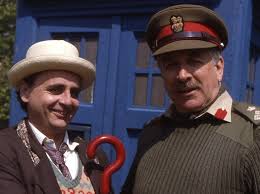
10. Reunion With The Brigadier(Battlefield)
The event of the Doctor's converging alliance with the Brigadier, in any of the incarnations of the primary protagonist, have always been spectacles to behold for fans of UNIT, and even in some of the more mediocre stories it has starred in, their flourishing relationship of synergised and galvanised chemistry has shone the rays of redemption. They have rarely acknowledged the full extent of their adoring admiration of on another aloud, but there has been a profundity to even the subtle implications of the dynamics of their optimal regard for each other ever since their introduction-When the Second Doctor assisted UNIT in the relinquishment of the Great Intelligence and the legion of Yeti in The Web Of Fear in 1968.
That established precedent sustained its prominent eminence all the way until 1989, where the trans-dimensional sorceress, Morgaine, summoned a Destroyer to lay devastating waste to England and relocate the sword Excalibur, and it was what instilled the resonance of the elation in vicariously experiencing their reunion after the Alistair Gordon Lethbridge-Stewart's retirement. It really was bolstered by their mutually affectionate past, and perpetuated the precedent even further to the phenomenal exuberance of the Seventh Doctor. Simple, and satisfying in the elation of the reconciling of the chemistry shared within the return to familiar territory.
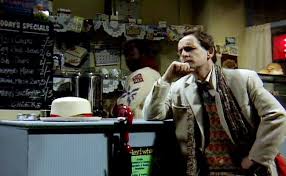
9. "Ripple Effects"(Remembrance Of The Daleks)
Many of the insular moments that the Seventh Doctor has been emphatically esteemed for are the compelling soliloquies he has frequently orated with precognitive consideration, and spontaneous improvisation alike. And one of the many quintessential examples of his profound contemplative wisdom and perspicacity-that he had accumulated through a wealth of experiences throughout his escapades throughout time and space-In a conversation with John at his cafe over a cup of tea:
JOHN: Hmm? Your tea. Sugar?
DOCTOR: Ah. A decision. Would it make any difference?
JOHN: It would make your tea sweet.
DOCTOR: Yes, but beyond the confines of my tastebuds, would it make any difference?
JOHN: Not really.
DOCTOR: But
JOHN: Yeah?
DOCTOR: What if I could control people's tastebuds? What if I decided that no one would take sugar? That'd make a difference to those who sell the sugar and those that cut the cane.
JOHN: My father, he was a cane cutter.
DOCTOR: Exactly. Now, if no one had used sugar, your father wouldn't have been a cane cutter.
JOHN: If this sugar thing had never started, my great-grandfather wouldn't have been kidnapped, chained up, and sold in Kingston in the first place. I'd be a African.
DOCTOR: See? Every great decision creates ripples, like a huge boulder dropped in a lake. The ripples merge, rebound off the banks in unforeseeable ways. The heavier the decision, the larger the waves, the more uncertain the consequences.
It exemplified the constant cognisant awareness that the Doctor possessed over the consequences of any exacted actions, as an analogous representation of the repercussions of interfering with time; And was an oracle of truth to be regaled by.
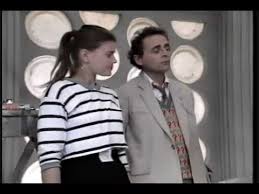
8. Playing The Spoons(The Greatest Show In The Galaxy)
One of the many tropes that each and every Doctor has endured is the discovery of their identity, and their particular affinities for liable penchants and preferences. Some have been allocated an exploration with more depth than others, and Sylvester McCoy's Seventh Doctor was considerably the most beneficiary of that realisation-As his was protracted out over the longest duration of adventures. Where the majority of the other iterations of the character were defined by the conclusion of their inaugural endeavour, Sylvester McCoy was still discovering many quirks and proclivities unique to his character well into his tenure in custody of the TARDIS key.
Before being confronted with the task of performing in the titular "Greatest Show In The Galaxy" to appease the gods of Ragnarok, he developed the employment of proficiency playing the musical instrument of his choice, that has rivalled the flute of the Second Doctor and the guitar of the Twelfth-Musical spoons. What made such a comical display so vital to the character of the Seventh Doctor is the fact that it was the aptest contrast to the more austere elements that pervaded the tonality of Doctor Who, and lent itself to distilling an atmosphere of humour to the character, and it occurred at the expense of Ace's disdain while serenading her in the TARDIS.
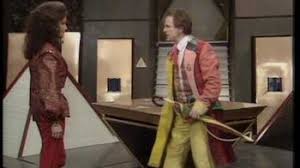
7. Post-Regeneration Recovery(Time And The Rani)
Discovering his ability to play the spoons was par for the course of the maturing process of the Seventh Doctor's development, but if the initial aftermath of his regeneration from the form of the cantankerous Sixth Doctor hadn't gone harmoniously or hadn't been handled effectively, he never would have reached a position in his cycle where executing such a magnificent exhibition would have been possible. It was another typical procedure-Going through the motions of his bewildered amnesia, and subsequently arousing a mutually reciprocated suspicion between himself and companion Mel Bush, whom he had mistaken for the nefarious Rani; Similarly to the way in which the Sixth Doctor had fallaciously believed Peri Brown to be an alien spy, but distinguished by his aversion to descending into a fit of murderous rage.
After circumnavigating the myriad of delirious distortion, he flirted with the precursory dalliances of what he would later assume as an identity defined by its profundity-Through his orations of gospel clarity and perspicacity, but disjointed amidst the haze of confusion, where he stated "Absence makes the nose grow longer!", "A bird in the hand keeps the Doctor away?', "Ahh, well every dogma has its day.", "Two wrongs don't make a left turn.", "A miss is as good as a smile." and "Time and tide melts the snowman.". The components of the sentiment he wished to express were all present, but they were unorganised and required configuring. The disharmony his amicability with Mel was plunged into necessitated some reassurance of his munifcence, even after the thwarting of the Rani's formula for malevolent intent by capturing the custodians of the universe's most superior intellects in order to capacitate her time manipulator by harnessing the power of their minds.
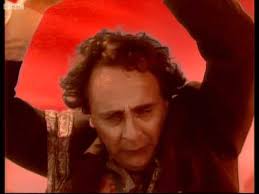
6. "We Die Like Animals"(Survival)
The Doctor is widely regarded as an enthusiastic proponent of pacifism, and although they have occasionally made themselves suspect to the challenge of their commitment to that philosophy by making a foray into the vagueness of their defining distribution of it, it has been their impulsive reactions of propagating libertarianism by the most passive and peaceful means possible that have certified any testimonies to the credence of that proclamation. Particularly in engagements with their most venomous of adversaries, like the Daleks, the Cybermen, the Sontarans and the Master, the aptitude with which they have repressed an emotionally fuelled outburst of intuitive rage and violence has been largely incomparable and uncontested by anything deposing their justification as a purely benevolent god.
Refrains from exterminating the entire genealogical origin of the Daleks when presented with an opportunity to by exacting the simplistic action of simply bringing two wires into contact, solving multiple crises by deploying no strategic tactic other than the rationale of diplomacy, and even desisting from the deeds influenced from an urge to interfere after making the realisation that withdrawal from a situation would, in fact, be the solution, instead of just assuming the potential malice of the parties involved have stood as outstanding examples of this admirable ethical code, but one of the moments in which the Seventh Doctor exhibited this to the furthest of the extents of his discipline, was in an altercation with the Master; Where the villain's exploitation of the will of Midge was contributing to the rapidly deteriorating state of Perivale and an ancient planet of cheetah people. It lead to a climax where the Master attempted to engage in physical combat with his adversary, and the Doctor resisted the opportunity to kill the Master after forcing him to the ground, and protesting:
DOCTOR: They've gone. What am I doing? I've got to stop. We've got to go.
MASTER: You can't go. Not this time.
DOCTOR: Yes, we can!
MASTER: Escape to what? I don't choose to live as an animal.
DOCTOR: If we fight, we'll destroy this planet. We'll destroy ourselves!
MASTER: You should have killed me, Doctor.
DOCTOR: If we fight like animals, we'll die like animals!
The necessary self-discipline and fidelity to his convictions in the heat of an incredibly tenuous situation were what made his reaction to the perturbation of the entire moments memorably commendable from the perspective of awe-stricken Whovians-Still starstruck by his defiance of the Master's malignancy, and the maintenance of the staple vintage of the character's traits of remorsefully recusing himself from rancour.
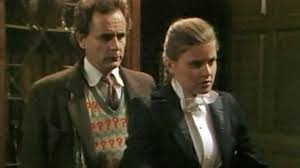
5. "A Universe Of Terrors"(Ghost Light)
One of the features of the Seventh Doctor's personality that was contradictorily compelling was the almost guilty pleasure he offered the indulgence in through the scheming and calculated strategy he possessed in spades, despite its submersion beneath his preferential exhibitions of the jovial and comical variety, were, factually, transcended by being superseded by the subtle, but omnipresent spark of delight he took in being able to exercise his demons. He seemed to actually enjoy and take pleasure in the gratification of his impulses in moments that provided the facility for them to shine, but there were also instances where he was more reluctant to involve himself with such exploits.
Perhaps the most emotionally resonant and affecting of those was when he acknowledged that, in order to best aid his beloved friend and companion Ace with the confrontation and relinquishment of her own demons, he would have to coerce her into a situation in which he was aware she would be most uncomfortable and discontented with; She had exposed her vulnerable side to him when she had confessed to the act of arson she had committed as a former delinquent on an antiquated mansion in her hometown of Perivale, and he autonomously determined that the necessary course of action would be to capitalise on the unique luxury that commandeering a time and space vessel granted him-And he took her back to the very same building during the Victorian era in 1883(a century before the destruction of the mansion).
A divergent digression from the sentiment behind the reason for their arrival there was the plot of the nefarious life form cataloguer, Josiah Samuel Smith(who had appropriated the assimilation of his physical manifest to represent that of a Victorian gentleman in order to deviously conceal his intention of warping the minds of the housekeeper Mrs Pritchard, the Neanderthalic butler Nimrod and the resident Gwendoline in accompaniment to his scheme to assassinate Queen Victoria in a bid to gain subjugative dominion over the British Empire)-But the Doctor's attempt at an act of deceptively influencing the involuntary acceptive embrace of Ace's demons was, in intention, a symbolic gesture of compassion to help her; And he evidenced that with participation in a conversation reminiscing over his own past:
Ace: It's true isn't it. This is the house I told you about.
Doctor: You were thirteen. You climbed over the wall for a dare.
Ace: That's your surprise isn't it? Bringing me back here.
Doctor: Remind me what it was that you sensed when you entered this deserted house. An aura of intense evil?
Ace: Don't you have things you hate?
Doctor: I can't stand burnt toast. I loathe bus stations. Terrible places. Full of lost luggage and lost souls.
Ace: I told you I never wanted to come back here again.
Doctor: And then there's unrequited love. And tyranny. And cruelty.
Ace: Too right!
Doctor: We all have a universe of our own terrors to face.
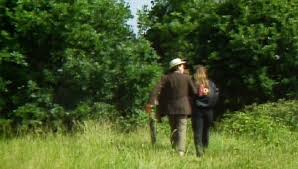
4. "A Lot Of Work To Do"(Survival)
Though it wasn't universally acknowledged at the moment of the broadcast of the events of the Master's plot to exploit the degenerative collapse of the cheetah planet, the eventuation of their resolving conclusion would serve to be the swan song of the classic series of the science fiction paragon, Doctor Who. And, despite the gradually diminishing degrees of the show's resounding reverence amongst enticingly infatuated fans, the disciples of Whovianism were devastated to find that their devoted obsession(of which they had invested all of their available immersed fixation into) was coming to a conclusion. Of course, the show would be revived to an epitome of acclaim sixteen years later, and it had experienced the zenith of resplendence and glory during its initiatory tenure, but that didn't mitigate the bitterness of the blow.
The resolve of the producers, however, was to send the show out on an explosively spectacular final bow, and so the transpirations of the Master's menacing machinations raised the stakes to the jeopardy of a worldwide Armageddon. But, in typical Doctor fashion, the protagonist was able to negate the triumph of his nemesis, despite the allowance of the planet to have run its natural course and die-In an ironically poetic reflection of the show itself. The tone with which the heroes featuring in the final adventure departed was not one of the terms of conclusive culmination though. As they emerged victorious in their "survival" of the tragic events, the Doctor lead Ace back to the TARDIS on an optimistic dissemination of a parley pertaining to the conscientious anticipation of what lay ahead:
ACE: Home.
DOCTOR: Home?
ACE: The Tardis.
DOCTOR: Yes, the Tardis. There are worlds out there where the sky is burning, where the sea's asleep, and the rivers dream. People made of smoke, and cities made of song. Somewhere there's danger, somewhere there's injustice, and somewhere else the tea's getting cold. Come on, Ace, we've got work to do!
Considerably iconic and arresting of affected attention in its own right, when viewed in a vacuum, but the additional contextualisation of its role in finalising what was a monumentally marvelled over series made it more pertinent to the chronology of the vicarious experience of time and space through the conduits of the Doctor and all of their companions.
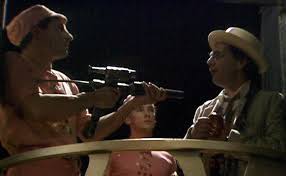
3. "End My Life"(The Happiness Patrol)
For all of the deceptive undertones that multiple interpreted iterations of the Doctor have incrementally exhibited throughout the cycles of their lives, there have been a few that have really been distinguishable as the repulsively pristine needles within a most formidable haystack of moments. There have been innumerable instances where the Doctor has had to resort to tactics of deceit and duplicity to trick their enemies into becoming the orchestrating architects of their own demise, but none have executed it through the methods of reverse psychology with the same inherent prowess as the Seventh Doctor.
There were many times where Sylvester McCoy's incarnation found himself presented with the opportunity to disassemble, and then re-engineer a situation in order to manipulate the outcome to become tailor-made for his own will-The righteous will. There are some particular moments amidst the catalogue of them that were more encompassing of the full composition of that element of his being, however; Like, for instance, when he found himself hanging precariously on the end of a gunpoint. Where many would capitulate in their intimidation of the intrinsic threat of the perturbing distress of the situation, the Doctor fronted a poker face, and spoke eloquently to convince his assailant of the abhorrence that causing any kind of grievous harm to him would denote:
Sniper 2: Get back. Or he'll use the gun.
The Doctor: Yes, I imagine he will. You like guns, don't you?
Sniper 1: This is a specialised weapon. It's designed for roof duty. Designed for long range. I've never used one up close before.
Sniper 2: Let him go.
Sniper 1: No.
The Doctor: No. In fact... let him come a little closer.
Sniper 1: Stay where you are.
The Doctor: Why? Scared? Why should you be scared? You're the one with the gun.
Sniper 1: That's right.
The Doctor: And you like guns, don't you?
Sniper 2: He'll kill you.
The Doctor: Of course he will. That's what guns are for. Pull a trigger. End a life. Simple, isn't it?
Sniper 1: Yes.
The Doctor: Makes sense, doesn't it?
Sniper 1: Yes.
The Doctor: A life, killing life.
Sniper 2: Who are you?
The Doctor: Shut up. Why don't you do it then? Look me in the eye. Pull the trigger. End my life.
Sniper 1: No.
The Doctor: Why not?
Sniper 1: I can't.
The Doctor: Why not?
Sniper 1: I don't know.
The Doctor: You don't, do you. Throw away your gun.
He composed himself in a way that was suggestive of a man brought to the brink of the boundaries of his tolerance for violence, but as if(contradictorily) he would be prone to lashing out in the outrage that being offended by such an audacious intent impelled.
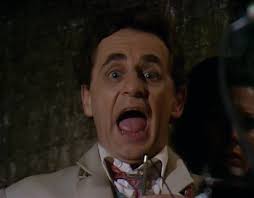
2. "Unlimited Rice Pudding"(Remembrance Of The Daleks)
Similarly to the schemes of his manipulation, as they were sourced behind the same foundational concept of enlightening his "inferior"-ly intelligent adversaries to the idiotic absurdity of their recklessness-The Doctor also lectured their foes through methods of comical ridicule. Often, it was via the communication of passive and derisive commentary on their derogatory disgust with their actions, as perfected by the Eleventh Doctor. But in the regular occasions where he was afforded the luxury of controlling a situation and not allowing anyone around him to crowbar a single word in, the Seventh Doctor could exude a tirade of abuse aspersed in the direction of an opponent.
That was exemplified best when he found himself, once again, in communication with the persistent pest, Davros, when he and the Daleks affronted London in the conquest that was dictated by their relentless pursuit of the Hand Of Omega, and the Doctor held a transmitted interconference with his foe:
DOCTOR: Every time our paths have crossed, I have defeated you.
DAVROS: You flatter yourself, Doctor. In the end, you are merely another Time Lord.
DOCTOR: Oh, Davros, I am far more than just another Time Lord.
DOCTOR: Davros, the Hand of Omega is not to be trifled with.
DAVROS: I think I am quite capable of handling the technology.
DOCTOR: I sincerely doubt that.
DAVROS: Does it worry you, Doctor, that with it I will transform Skaro's sun into a source of unimaginable power? And with that power at my disposal, the Daleks shall sweep away Gallifrey and its impotent quorum of Time Lords! The Daleks shall become Lords of Time! We shall become all
DOCTOR: Powerful. Crush the lesser races. Conquer the galaxy. Unimaginable power. Unlimited rice pudding, et cetera, et cetera.
The was a simultaneous morose acknowledgement of the austerity of the situation, and an extrapolated element of humour from the ridicule and disparagement of how pathetic the abhorrent philosophy of the Daleks' attempted conquest of the universe was. Audacious, when the magnitude of the potency of the odds the Doctor was faced with is taken into consideration-But a pastiche of the Doctors that preceded and ensued the cycle of the Seventh.
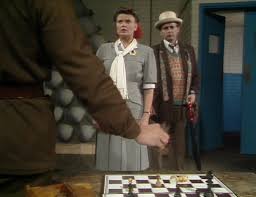
1. "Kill Her"(The Curse Of Fenric)
Yet another echo of the resounding and repetitive tone of what the Doctor sought to contribute to the better interest of his claim of vindicative salvation for those imperilled by the looming possibility of being victimised as nothing more than collateral damage caught in the periphery of the devastation caused by the brutish degenerates of the universe; His deceptive influence of reverse engineering his case of rationale, revolving an argument by turning it on its head, and literally stating the opposite of what he contested in a situation is what became a most reliable tactic for implementation in the pursuit of success.
But a situation arose when his achilles heel was jeopardised. The life that he valued above even his own-The life of Ace. When the vampiric haemovores, under commissioned employ of the dastardly Fenric, invaded an English naval port on the coast of Northumberland during World War Two, Ace was thrust into a beleaguering state of mortal danger-And it was through the depreciative devaluation of her life, as a conniving machination of the Doctor's manipulation to ostensibly conceal his urgent resolve to save her that achieved that precisely, when he concurred with Fenric:
Fenric: Kneel if you want the girl to live!
The Doctor: Kill her.
Fenric: The Time Lord finally understands.
The Doctor: Do you think I didn't know? The chess set in Lady Peinforte's study? I knew.
Fenric: Earlier than that. Before Cybermen, ever since Ice World, where you first met the girl.
The Doctor: I knew. I knew she carried the evil inside her. Do you think I'd have chosen a social misfit if I hadn't known? She couldn't even pass her chemistry exams at School, and yet she manages to create a time storm in her bedroom. I saw it in your hand from the very beginning.
Ace: Doctor, no.
The Doctor: She's an emotional cripple. I wouldn't waste my time on her, unless I had to use her somehow.
Ace: NO!

